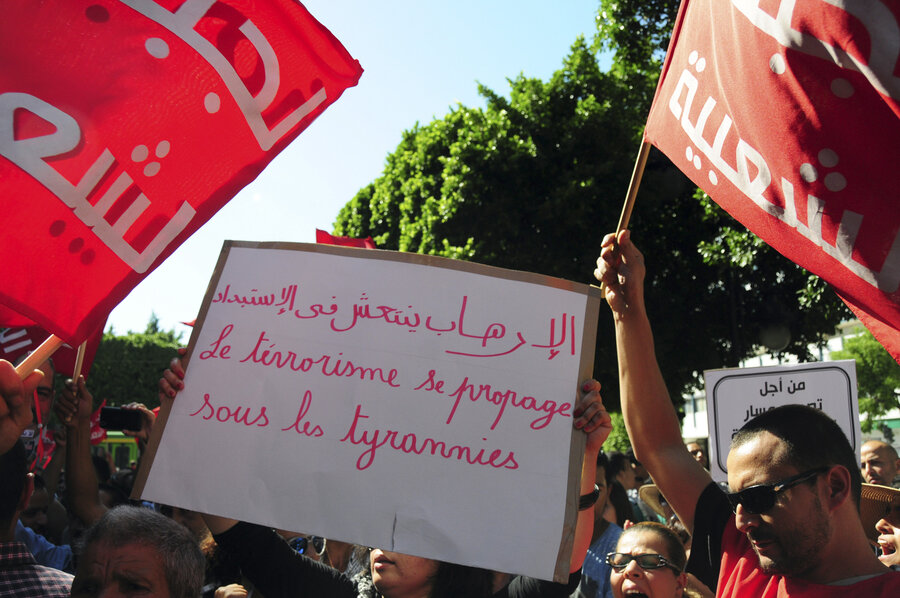Tunisians march against corruption amnesty law
| TUNIS, Tunisia
Hundreds of Tunisians marched Saturday through the capital under heavy security to protest a law offering amnesty for those accused of corruption.
The controversial draft law on economic reconciliation is a centerpiece of the new government's program and seeks to boost the economy by clearing cases against businessmen and civil servants accused of corruption.
Opponents to the law, however, see it as an attempt to whitewash the crimes of the old regime and ignore an ongoing process of transitional justice.
"No to reconciliation that whitewashes corruption!" protesters chanted as they marched. "No to despotism and reconciliation with corruption!"
Charfeddine Kerrel, head of the "We Won't Pardon" organization, said he feared the law was only the beginning of returning to the dictatorship.
"It is shameful for us to reconcile with the corrupt," he said.
A nationalist party, Nida Tunis, came to power in an election last fall and rules in alliance with the Islamist Ennahda party. Both support the new law.
Police had originally banned Saturday's demonstration, citing threats of terrorist attacks, but left-wing and liberal parties as well as civic groups went forward with the march.
"(The draft law) is unfair and unconstitutional," Sami Tahri, an official with the Union for Tunisian Workers, said at the protest. "It doesn't fight corruption, it encourages it."
Hundreds of police guarded the short demonstration route along the city's iconic Bourguiba Avenue, where four and a half years ago protesters brought down long-ruling dictator Zine El Abidine Ben Ali.
Under Ben Ali, a few families dominated the economy and kickbacks and corruption was rife.
Immediately after the revolution, cases were leveled against a number of businessmen. The new government argues that devolved into a witch hunt which has kept business leaders from reinvesting in the country's faltering economy.






